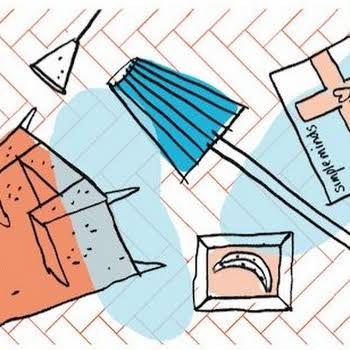
By Jennifer McShane
28th Jan 2017
28th Jan 2017
I haven’t had the best week. The last several days have been a blur of endlessly kicking myself for giving in to the unkind words of strangers, and I haven’t slept much. But it isn’t the best of times, and we’re all trying to look on the bright side.
I met up with two great friends during the week, though, and we told each other our woes. I nodded in agreement as one told me her tendency to over-think every tiny detail was wearing her down while I advised the other to have a talk she was dreading. I encouraged and reassured; they were wonderful, kind women and advised that taking said steps would help. I wondered then, why I couldn’t impart that same kindness to myself. Why I always bite back, telling myself that I’m not trying hard enough and I’m setting myself up for a massive failure. The term ‘self-love’ is one that now can induce eye-rolling and negativity, but it’s so?important, even once in a while to say, you know what, you’re doing brilliantly. If you could go back and tell your younger self?anything, wouldn’t it be that?
And if I had a young daughter, I’d tell her that constantly; how brilliant she’s doing (I’d go one step further and mortify her by wearing it on a t-shirt with an arrow). This encouragement from a young age isn’t just needed – it’s vital. And the results of a major US study are anything to go by; we need all the young women around us to hear them more than ever.
According to an article in The Guardian from a few years ago, researchers in the US have found that primary school-age girls lack belief in their own abilities when compared to their male peers. Girls as young as six are convinced that boys are more innately brilliant or gifted than them. The research, published in the journal Science showed that girls – unlike boys – are more likely to put good grades down to hard work, rather than natural talent.

Psychologists from three American universities carried out a range of tests with 400 girls and boys aged between five and seven to examine how gender stereotypes affected children’s beliefs about intelligence and ability. They discovered that from as young as six, they are far less likely to believe in female intelligence, whereas six-year-old boys identified people of their own gender as being ‘really, really smart? 65% of the time – for girls of the same age, that figure shrank to 48%.
This study shows that girls are internalising those cultural messages early in development, believing that, yes they may work hard, but they are not naturally really smart.
Andrei Cimpian, a co-author of the research from New York University, said that the work highlights how even young children can absorb and be influenced by gender stereotypes – “such as the idea that brilliance or giftedness is more common in men. Already by this very young age girls are discounting the evidence that is in front of their eyes [academic success] and basing their ideas about who is really smart on other things”, he said. “Because these ideas are present at such an early age, they have so much time to affect the educational trajectories of boys and girls. For example, girls from five to seven were likely to think that their gender would only get them good grades if they worked ‘really really hard.'”
So, keep on telling any young girls you know, that they are brilliant. They need to see that being a girl doesn’t mean you always have to work “really, really hard” to be as good as the boys, you are and can be as good as them, regardless.























